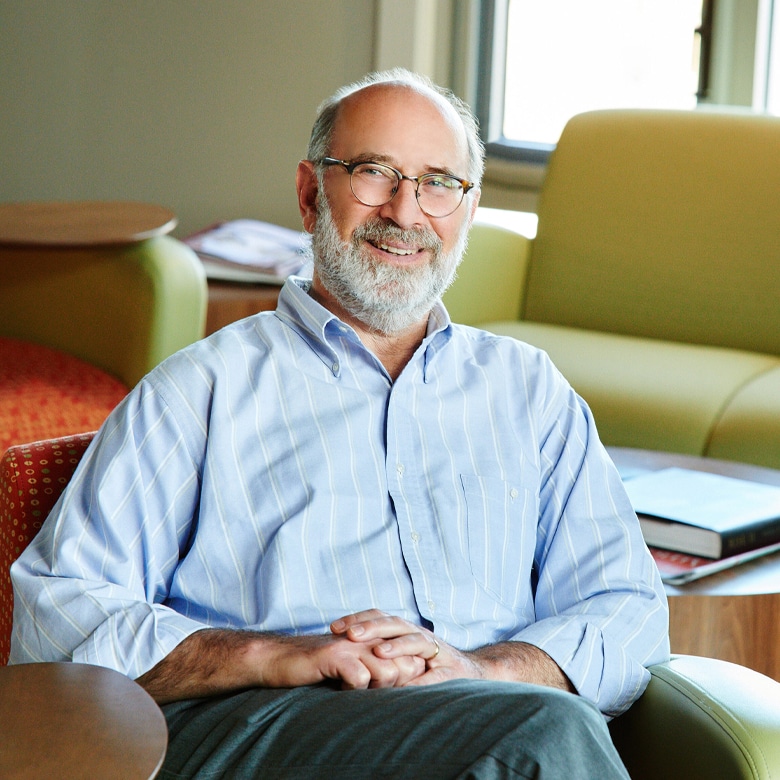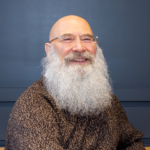How did your career journey lead you to Geneva Global?
My path to Geneva Global was simultaneously serendipitous and natural. I have been working in international education for over 30 years, focusing on issues of quality, relevance, and equitable access across many education domains. Geneva Global was looking for someone with broad development and management experience who could bring substantive technical leadership to its Speed School program. Speed School represents a rare interdisciplinary, holistic approach to education programming that reflects most of what I’ve wished I could do with projects over my career but only very rarely could. Now, I get to combine virtually all my most exciting education ideas and aims into one program. Geneva Global provides a marvelous space in which to do this because of our commitment to innovation and impact and the entrepreneurial, flexible attitude of our clients. The serendipity that brought me here is that I actually moved from Switzerland, where I had lived six years with my family, to join Geneva Global in Paoli, PA – a mere 20 miles from where I grew up.
How has your role at Geneva Global evolved?
Having just completed four years at the company, my role has evolved in a few ways. Early on, I spent most of my time engaged deeply in the development and delivery of programs. My main aim was to learn what Speed School entailed, but as an instructional model and as a development program that we were implementing. While the main responsibility for the program’s management and delivery belongs with the country teams in Ethiopia and Uganda, I spent over three months a year in the two countries working directly with the teams in refining the model and materials, in planning, and in supporting teacher training. Over the past year plus, my focus has shifted towards other aspects of our work. One, I have continued to support the two country teams, but this has involved more attention to their work to accompany the two governments in adopting the Speed School model officially for sustained and scaled operation. This has involved me much more deeply in policy, government planning, and technical work. Two, I have spent more time looking and working beyond Ethiopia and Uganda. My immediate aspiration is to find a client or clients who would like to fund the introduction of Speed School to a new country. I am also working on projects other than Speed School, including most recently an exciting technical advising role to help the Ministry of Secondary Education and Professional and Technical Training in Mauritania to revise its national secondary curriculum.
What fulfills you most about your role?
I’m an education nerd, so my greatest fulfillment comes from helping teachers teach differently to get better learning outcomes in the classroom. Probably the greatest fun I have had over the past four years was the three full days I spent observing and working with a group of three Speed School facilitators in their classrooms. I got to see how our work was truly changing the whole classroom dynamic for these instructors and their pupils to yield truly confident, competent learners. At the same time, I derive enormous fulfillment from the ability to work with my Geneva Global colleagues at HQ and in the countries to influence all of the many working parts of the full education system to create conditions for teachers and students to succeed in the classroom. The chance to work with my colleagues to influence at the same time policy, planning, curriculum, teacher training, school supervision, parental engagement, and more as a complete package is rare and tremendously satisfying.
How has the educational landscape changed over the last few years?
That’s a tough one, mostly because it has not changed much at all. Education is a highly conservative sector – both supportive and discouraging of innovation in different ways. The real challenge is to get great ideas cultivated in the micro-setting of a classroom, a school district, or a project to scale into sustained improvements at a system or international level. I’m hoping that Speed School can break out of this mold. Our ministry colleagues in Ethiopia are trying hard to translate the lessons of Speed School across the primary school system. The success of Speed School is not our pedagogy or classroom management strategies. It’s the conditions we create that allows facilitators to use these consistently and effectively. Those are harder for systems to adopt, but this is the key to true change. A possible silver lining in the extended school closures linked to the COVID-19 pandemic is that the need to change the fundamental conditions of education has become even more evident. Hopefully, the lessons we have learned from Speed School that have allowed us to keep our students learning despite the lockdown will convince education leaders to flip the switch that will bring about real education change.
What are you most excited about for the future of education and Speed School?
For education in general, I am fully convinced by and excited about the growing focus on 21st Century Skills in learning. These are the personal competencies such as critical thinking, creativity, planning, and more that students will need to engage successfully and with fulfilment in the family, social, and economics spheres. One of my nerdy education mottos is “there is no quality without relevance.” When education features 21st Century Skills, it is treating education as a human right that is fundamental to achieving all other human rights. In other words, education is the key to reaching the other 16 Sustainable Development Goals. As regards Speed School, I am excited that this represents a rare, highly effective model for equipping all children, even those in the most marginalized conditions, with 21st Century Skills. The more I attend seminars (or mostly webinars, these days) and read reports on 21st Century Skills, the more I am frustrated by how little I hear about actual classroom practices to cultivate these among learners. I am excited that we have demonstrated how to do this concretely with over 220,000 children. And I am excited by the prospect of helping new countries introduce the Speed School model and methods into their education systems.
What advice would you give to someone who wants to work in the international education space?
My first advice is to begin by teaching. Teach anywhere, any grades (K-12), in any setting, and any subject; but teach. I’ve had many brilliant colleagues over the years who worked in international education, but many had never taught. I contend that only those who have taught truly understand that teaching is not easy. This was even true in the privileged classrooms in which I taught junior and senior high school French and Spanish a thousand years ago. Since the success of education reforms, innovation, or other initiatives depend on the ability of teachers to use them effectively, understanding the conditions and mindset of teachers is crucial. My other advice is to be very open in what you will accept as your first job. Have a solid idea of what types of activity will allow you to learn and find professional fulfillment, but accept that this can happen in a wide variety of circumstances. Work hard to learn and perform the best you can. Early in my career, I worked very hard to get assigned to Cameroon with Save the Children. One day, my supervisor offered to send me to Sudan. What?! Three weeks later I landed in an Eritrean refugee settlement in a remote area of the country where I then spent 13 of the most rewarding and instructive months of my life, both personally and professionally.
What are you reading right now?
I’m reading The Overstory, by Richard Powers, and just listened to The Obelisk Gate, by N. K. Jemisin. And of course, I’m reading education documents, including a series on teaching and teachers produced by the TALIS program of the OECD.
Where do you get your news?
I’m a podcast junkie. Before I even get out of bed in the morning, I cue up NPR’s Up First, the New York Times’ The Daily, and The Daily Show with Trevor Noah. Other favorites are NPR’s Throughline, Rough Translation, and Code Switch; MSNBC’s Into America; and Crooked Media’s Pod Save the World. Bill Maher and the Wait Wait Don’t Tell Me podcasts also keep me informed and entertained.
How has your work-from-home journey been? Any tips or tricks?
I’m surviving. The greatest challenge is not working all day long. I try to break things up with a bike ride a few times a week and taking “recess” with my 13-year-old, who is doing classes from home three days a week. I also try to connect with colleagues regularly, both from HQ and our country programs. I’ve got a comfortable office set up that allows me to work undistracted. Frankly, I could use a bit more distraction sometimes. But, I feel very fortunate to be able to continue to do work that I love, that makes a difference, I believe, and that leaves me fulfilled.
For more information about Josh, and to meet the rest of our team, explore the Meet Our Team page.

